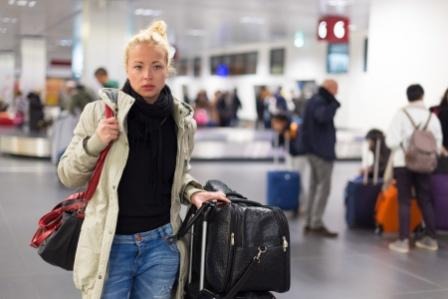Homeowners thinking of offering homestay accommodation to international students may have heard any number of rumours or misunderstandings commonly in circulation. Especially, in recent times, as a result of government policies or speculation over the long term effects of England withdrawing from the EU. Before ‘doing up’ the spare room to British Council approved standards, a potential provider of hosted accommodation would naturally be concerned to find out the truth behind the misconceptions that may have arisen.
Established hosts of international student accommodation may also be wondering if some of the confusion may be harming the special experience of cultural exchange. While the additional income helps with household costs, hosting families are often teachers, lecturers or care professionals who highly value the knowledge and understanding that can be promoted through the rent-a-room scheme.
International students make up nearly one fifth coming to the UK
Firstly, the number of international students who now apply to Britain – is there a cause for concern? Some survey reports suggest that numbers of EU and non-EU students may be discouraged from applying to the UK in the future as a result of the changing rules caused by Brexit.
It is true that the number of international students coming to the UK for higher education which, until 2011 was growing at around 3-4 per cent every year, has reduced. Nevertheless, of all students in UK higher education, international students make up nearly one fifth (18 per cent), of which, 19 per cent study in England, 10 per cent in Northern Ireland, 22 per cent in Scotland and 18 per cent in Wales), according to the latest available figures from UKCISA report – Briefing on International Students, September 2016.
The number of international applicants had actually risen by 2 per cent in 2015, an increase of more than two thirds over a ten year period, which is expected to reach more than one in five by 2018, according to latest figures from the Universities and Colleges Admissions Service (UCAS).
More satisfied with their living and learning experience than in any other country
By and large surveys tend to agree that usually around 85 per cent at least of international students are largely “satisfied” or “very satisfied” with their experience in the UK. Not unsurprisingly, the UKCISA survey reports that there is often some sensitivity over fees, living costs and, more recently, the ability to work part-time during studies or full-time afterwards. However, the widely used International Student Barometer survey of January 2016 showed that students from abroad studying in the UK were, in fact, more satisfied with their living and learning experience than in any other country.
However, one key factor contributing to a drop in the figures was the abolition of The Post-Study Work (PSW) scheme, which allowed any Tier 4 student to stay on and work (at anything) for two years after their studies. Instead there are a number of much more limited schemes.
Introduction of Tier 4 of the Points Based System
It was often believed that once students obtained visas, no-one knew where they were and if they even registered at universities or colleges. Of course, you just had to enquire with a hosting family to see if they are safely studying in their room or sitting down with the family to eat their evening meal. Since the introduction of Tier 4 of the Points Based System any college wishing to recruit non-EEA (European Economic Area) students must first be inspected and accredited by an Education Oversight body approved by the Home Office and only then can they apply to be included in the Home Office’s Register of Sponsors, making their students eligible for visas.
Another misconception is that once students have arrived and registered, they the fail to turn up at college to study. Educational institutions now have to monitor attendance and progress and report any students to the Home Office who are not participating adequately. A college can lose their licence and no longer accept non-EEA students.
And far from not going home after their studies have been completed, research released by the Home Office in February 2016 showed that of those who arrived as students in 2009, only 17 per cent still had valid leave to be in the UK after five years.
UK remains the second most popular destination
So what of the future? For EU students, it is not as yet certain whether those arriving in 2017 or later will be eligible for student loans and whether their fee status might alter. Assurances on loans have been given to those arriving in 2016 for the full length of their courses and some colleges “guarantee” that their fee status will not change for some years.
The UKCISA report highlights that the UK remains the second most popular destination for international students in the world, after the USA, but ahead of Australia, New Zealand and Canada. Clearly, the quality of UK further educational colleges, especially English Learning schools, will continue to attract international students long after Brexit has begun.
So potential family hosts should have no qualms about getting that spare room up to scratch in time for when college courses start in your area.

